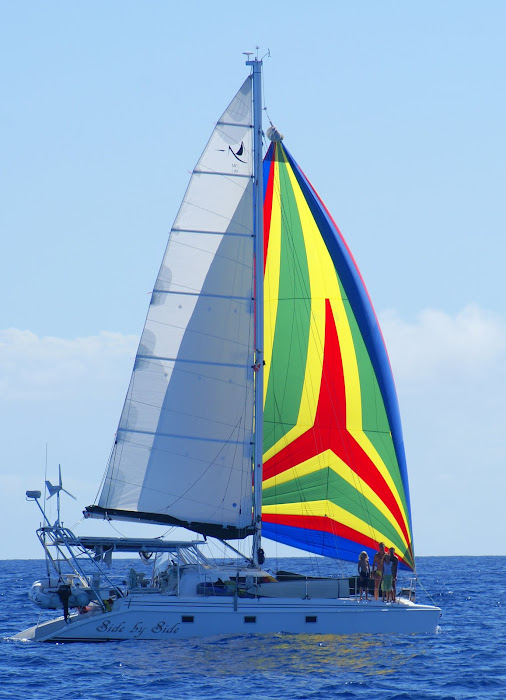.JPG)
Why go you ask, of course, for the scavenging, hunting and seclusion. All of us were excited to find lobster, whose season ended in 10 days. In Sabrina;A Child's History of the World", she learned about the life of the Stone Age people. "These early people must have spent most of their time hunting for food or trying to get away from animals hunting them for food". That was us, the scavengers of the Jumentos. Parker likes to scavenge the ocean beaches for fishing buoys and sticks to make spears and forts. Sabrina was determined to find sea beans and to make a necklace out of. After finding tons of sea hearts, only a rare hamburger bean would appease her. Another favorite for kids was to pile up found shoes for a "Payless shoe store" on the beach. She also was interested in spearing fish and lobster. Marc wanted to get up on the kite board and was excited for high winds. This year we have lost so many things. Just days before, Marc's kite-board had disappeared overnight. It had been used once and all were upset by it.
Marc is a superb hunting, able to lie on the deep bottom and spear well hidden lobster under rocks. On average, he was bringing home 3 large lobsters a day. The cave man genes have pushed their way to the surface. My big score was a boat fender and hat from washed up on the beach. That is what we have become, glorified dumpster divers on the beaches of the Bahamas, and loving it. It seems that other type A cruisers have similar ideas. Gathering spots are strewn with "art" displays of beach treasures and functional pieces like wheel barrows, tables and altars, all made of recycled materials. More disturbing were all of the plastic washed up and the beaches. What, as self proclaimed environmentalists should we do or not do with it? In the U.S., beach clean up days are organized and trash bagged and recycled or land filled. In the Bahamas, our choice is to leave it or burn it, releasing its lovely components into the air. Let us know which the better choice is.

.JPG)